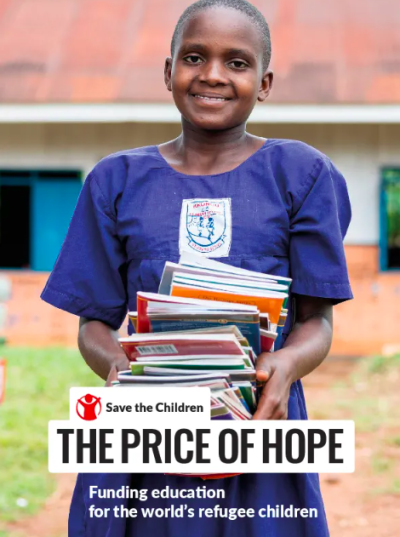Educação para Pessoas Refugiadas
A educação é fundamental para crianças e jovens refugiados e refugiadas. A Agenda 2030 e o Pacto Global sobre Refugiados de 2018 exigem que todas as crianças e jovens deslocados à força (incluindo pessoas refugiadas, requerentes de asilo e pessoas deslocadas internamente) tenham acesso a uma educação inclusiva, equitativa e de qualidade.
No final de 2023, havia mais de 117.3 milhões de pessoas deslocadas à força em todo o mundo.
A educação das pessoas refugiadas não deve ser uma intervenção em situações de crise de curto prazo, dependente de financiamentos imprevisíveis e insustentáveis.
Quem é uma pessoa refugiada?
De acordo com a Convenção de Refugiados de 1951, uma pessoa refugiada é uma pessoa que, devido a um medo fundamentado de perseguição devido à sua etnia, religião, nacionalidade, associação a determinado grupo social ou opinião política, se encontra fora do seu país de nacionalidade e é incapaz, ou, devido a esse medo, sente-se reticente, de beneficiar da proteção desse país.
Mensagens-chave
- A nível global, 90% das crianças estão matriculadas no ensino primário, 86% no ensino secundário e 43% na educação terciária. Em 2022-2023, apenas 65% das crianças refugiadas estavam matriculadas na escola primária, 42% na escola secundária e 7% na educação terciária.
- A educação protege crianças e jovens refugiados, entre outros riscos, do recrutamento forçado por grupos armados, do trabalho infantil, da exploração sexual e do casamento infantil.
- A educação oferece um lugar seguro onde meninas e meninos refugiados podem aprender e estabelecer relações significativas com os seus e suas pares no contexto normal de uma sala de aula
- A educação reforça a resiliência da comunidade e dota as alunas e os alunos com conhecimentos e competências para encontrar soluções a longo prazo.
- A educação capacita as pessoas refugiadas, dando-lhes conhecimento e competências para viver vidas produtivas, gratificantes e independentes.
- A educação ajuda as pessoas refugiadas a tornarem-se autossuficientes, permitindo-lhes aprender sobre si mesmas e sobre o mundo ao seu redor, enquanto se esforçam para reconstruir as suas vidas e comunidades.
- A falta de documentos e recursos financeiros, a disponibilidade limitada de escolas (especialmente secundárias) e a xenofobia são algumas das principais razões que impedem as pessoas refugiadas de aceder à educação.




